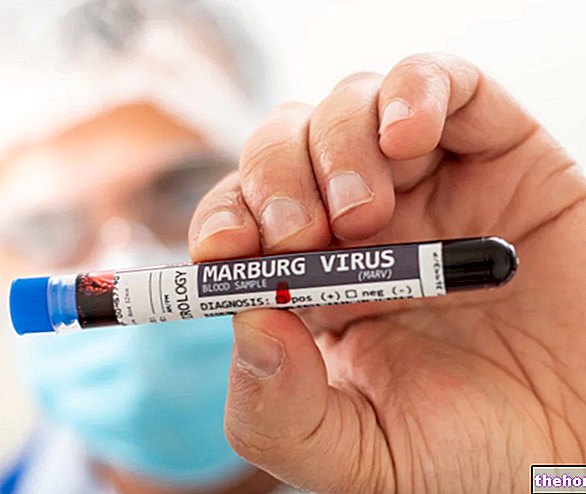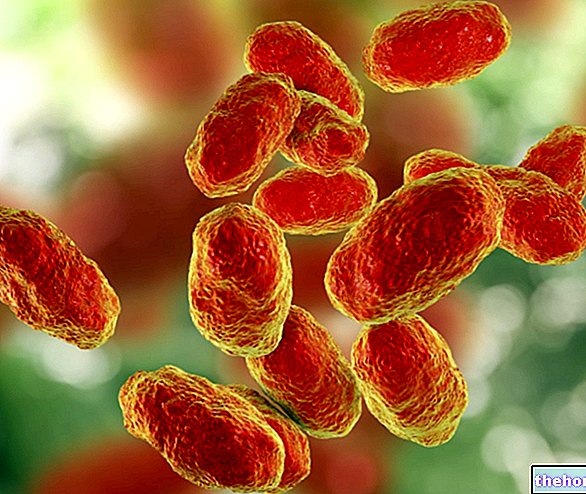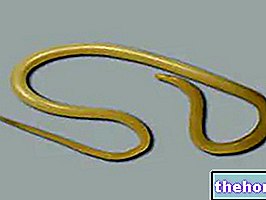Definition of incubation time
The "incubation period" is defined as the time interval between the invasion of the body by a microorganism - be it a bacterium, a virus or a fungus - and the manifestation of the first symptom of the disease that derives from it. vectors of diseases (eg flies, mosquitoes, ticks, etc.), the incubation time refers to the time interval between the entry of the virus or bacterium into the vector and the moment in which the latter is able to transmit the disease to a human host.

Generally, during the incubation period, the pathogen is NOT contagious; however, in some diseases, the infectious agent can also be transmitted during this phase.
Most of the time, therefore, infectivity begins later than infection.
The duration of the incubation period, expressed in time intervals, is not a constant in all diseases: in fact, each pathological discomfort is characterized by its own specific incubation time, which varies from a few hours (as happens, for example, for colds) to a few weeks.
Some diseases have a very long incubation time, estimated to be around a handful of years: this is the case of infection sustained by the HIV virus. The longer the incubation period, the greater the likelihood of diagnostic delay; in turn, the delayed detection of the disease complicates prognosis, as therapy is started late, often when it is too late.
Examples
Now let's see some incubation times for the most known diseases:
- Salmonellosis → 6-72 hours
- cholera, flu, cold, scarlet fever → 1-3 days
- meningitis from Haemophilus influenzae → incubation time not perfectly established. It is assumed to be 2-4 days
- legionellosis → 2-10 days
- dengue → 3-14 days
- poliomyelitis, whooping cough, malaria transmitted by P. falciparum → 7-14 days
- measles → 9-12 days
- mumps → 12-25 days
- smallpox → 7-17 days
- tetanus → 7-21 days
- chickenpox → 14-16 days
- rubella → 14-21 days
- mononucleosis → 28-42 days
- tuberculosis → 28-84 days
- malaria transmitted by P. vivax → 8-10 months
- HIV and leprosy → 1-15 years
NB: the incubation time can vary not only from disease to disease, but also according to the form in which the same pathology manifests itself.
The duration of the incubation period is conditioned by:
- Specific pathogen involved
- Number of infecting microorganisms
- Stamina of the host
- Degree of pathogenicity of the pathogen (or virulence)
Food poisoning and incubation time
Even for food poisoning (diseases due to the intake of food polluted by bacteria and their toxins) it is possible to speak of incubation time, which generally lasts less than 24 hours. The incubation period varies according to the type of toxic infection; in some forms, the pathogen's enterotoxin is processed OUTSIDE the host, therefore directly in the food. According to these words, it is possible to understand the rapidity with which symptoms occur. This is the case of toxinfections sustained by Staphylococcus aureus And Bacillus cereus, the incubation period of which normally varies from one hour to six hours.
Different speech for the bacteria that process the toxin INSIDE the subject: Clostridium perfingens, synthesizes the toxin in the digestive system, consequently the presence of the pathogen is essential for the manifestation of symptoms.In this case, the incubation time is longer (estimated between 8 and 20 hours).
As for common fish poisoning, the incubation period is generally estimated between 15 and 90 minutes; salmonellae are an exception, since, by taking root in the intestinal mucosa, they have a longer incubation time ( 6-24 hours).
- As we know, every food poisoning is characterized by specific symptoms, which often allow us to hypothesize, from the very first moments, the type of pathogen involved. In addition to the symptoms, however, the incubation time is also a fundamental element in orienting us towards a toxic infection rather than another: in fact, patients often complain of symptoms by exposing the time and day in which a meal was consumed. potentially infectious.
Considering the whole of these elements, it is therefore possible to quantify the duration of the incubation period of the different food poisonings.




























